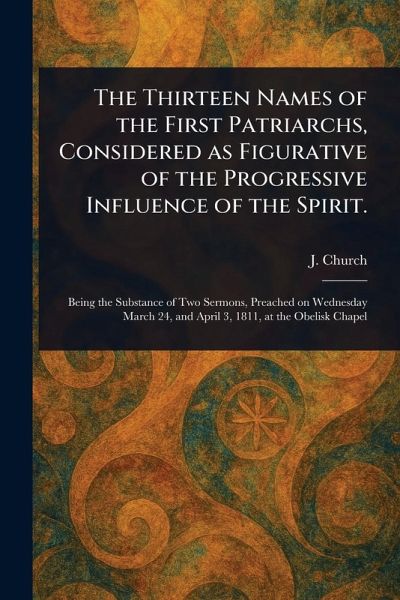
The Thirteen Names of the First Patriarchs, Considered as Figurative of the Progressive Influence of the Spirit.
Versandkostenfrei!
Versandfertig in über 4 Wochen
14,99 €
inkl. MwSt.

PAYBACK Punkte
7 °P sammeln!
"The Thirteen Names of the First Patriarchs, considered as figurative of the Progressive Influence of the Spirit," by John Church, offers a fascinating exploration of the Old Testament. This collection of 19th-century sermons delves into the spiritual significance of key figures from the Bible. Church's insightful analyses examine the patriarchs and their enduring relevance, drawing connections between their lives and the progressive influence of the Spirit. Readers interested in biblical studies and Christian theology will find this volume a thought-provoking resource. Focusing on the religio...
"The Thirteen Names of the First Patriarchs, considered as figurative of the Progressive Influence of the Spirit," by John Church, offers a fascinating exploration of the Old Testament. This collection of 19th-century sermons delves into the spiritual significance of key figures from the Bible. Church's insightful analyses examine the patriarchs and their enduring relevance, drawing connections between their lives and the progressive influence of the Spirit. Readers interested in biblical studies and Christian theology will find this volume a thought-provoking resource. Focusing on the religious importance of these foundational figures, the sermons offer a unique perspective on the Old Testament. This meticulously prepared print edition allows readers to engage with Church's interpretations and reflect on the timeless lessons embedded within these ancient narratives. Explore the enduring influence of these spiritual ancestors through the lens of 19th-century theological thought. This work has been selected by scholars as being culturally important, and is part of the knowledge base of civilization as we know it. This work is in the public domain in the United States of America, and possibly other nations. Within the United States, you may freely copy and distribute this work, as no entity (individual or corporate) has a copyright on the body of the work. Scholars believe, and we concur, that this work is important enough to be preserved, reproduced, and made generally available to the public. We appreciate your support of the preservation process, and thank you for being an important part of keeping this knowledge alive and relevant.





![The Devil of Names and Other Lectures and Sermons [microform] Cover The Devil of Names and Other Lectures and Sermons [microform]](https://bilder.buecher.de/produkte/65/65513/65513714n.jpg)
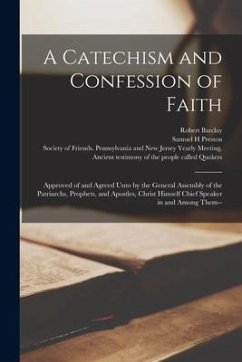
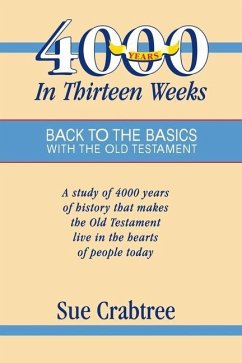
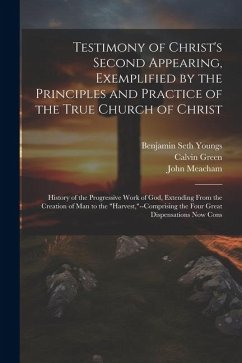

![A Needed Exposition, or, The Claims and Allegations of the Canada Episcopals Calmly Considered [microform] Cover A Needed Exposition, or, The Claims and Allegations of the Canada Episcopals Calmly Considered [microform]](https://bilder.buecher.de/produkte/65/65589/65589679n.jpg)
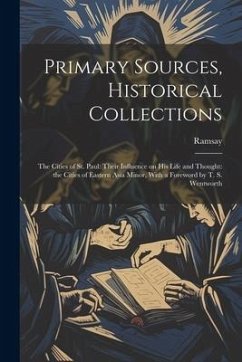
![Presbyterianism in the Colonies [microform]: With Special Reference to the Principles and Influence of the Free Church of Scotland Cover Presbyterianism in the Colonies [microform]: With Special Reference to the Principles and Influence of the Free Church of Scotland](https://bilder.buecher.de/produkte/66/66128/66128592n.jpg)

